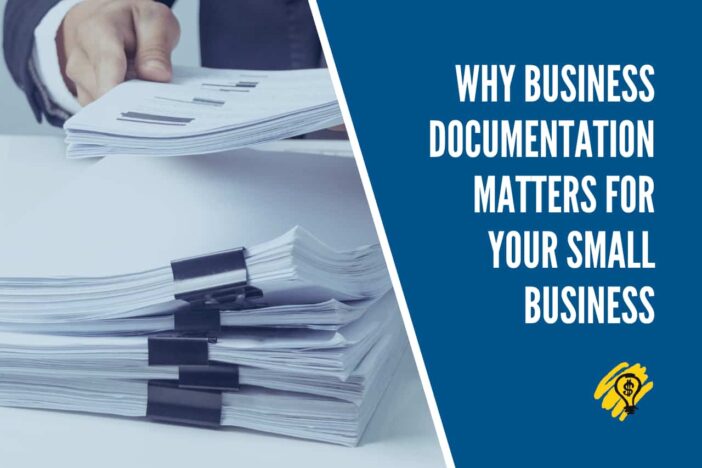If you’re not managing all of your business documentation in the right way, you may be missing critical opportunities to build credibility and trust with clients and employees.
A proper documentation system is required to track your business’s progress. When done correctly, this system can help the flow of your business run smoothly and with far less trouble than not having one. They can help with legal, financial, and managerial issues and make processes more manageable.
The value of documentation in business is not something most people think about. It can be one of the most important things you do as a small business owner, but if you don’t have a good system in place for managing your business documentation, it’s easy to overlook or ignore.
What Is Business Documentation?
Business documentation is a file or collection of various details and types containing records about the corporate’s internal and external dealings and processes. These are essential for any managerial aspect of a business because they provide descriptions and information on running the business and the details of transaction histories, making futile information easier. Large and small businesses use physical and digital forms of business document template.
Here are some factors why having proper business documentation matters for a small business:
1. Saves Time And Resources
Many experienced enterprise owners, websites, and blogs know that searching for and locating files is one of the most time-consuming tasks in your business. This problem becomes more challenging when they are dispersed and not correctly managed in one location. When you work from home or run a small business, this scenario becomes much more difficult because you cannot ask colleagues nearby for the location of a simple document.
Time is a valuable asset for any business owner. With proper business documentation, these files can be organized correctly in one place, making searching for them easier and manageable. Having proper documentation can also save resources in searching for them. Knowing the specifics of the files you are looking for can also make your search faster, giving you more time for other work responsibilities.
2. Indexes Content Properly
The financial, legal, and managerial information of businesses requires proper documentation, so transactions can become complicated if pertinent documents are not taken care of as they should. Without the correct organization of files, it would be challenging to look for financial transaction histories and other business matters.
This is where documentation comes into play. An organized index system allows for easy searching of files and information so the workflow becomes more manageable.
3. Generates Reports On Any Business Activity
Assessing your transaction history is essential in keeping your enterprise afloat. Learning from your past flaws and employing what works best for your business is critical, especially for smaller companies.
With a properly documented business history, you and your employees can easily find the dates and details of previous business transactions. You may check out software that allows hassle-free organization of activities. Simultaneously, cross-checking these business reports for your current trades, particularly tallying legal and financial transactions, can be done smoothly.

4. Increases Business Security
Data breaches, information theft, and leaks are too common in businesses, especially in competitive industries. If left unresolved, this can cause significant issues for your business.
Restricting parts of your business information to a small number of people is an ideal move; hence, proper documentation can help keep your valuable information more secure. Besides, businesses must have a system where they can safely store information about their plans and transaction history. Concurrently, controlling who can access what information can aid in information management and security, effectively avoiding confusion and information leaks.
5. Avoids Redundancy By Reducing And Retracting Files
Saving space and resources is vital for small businesses. This is because file clutter can be a significant issue, especially in legal and financial transactions, confusing your employees and maybe even your clients.
Organized and proper business documentation can ensure the information and transactions you access are not outdated or incorrect, reducing errors in the long run. You can delete old files so that these do not complicate future transactions but ensure to keep a copy of the final version. The presence of proper titles, dates, and indexed information in appropriate order and category reduces the occurrences of such, saving space, time, and resources.
6. Provides Offline Access
Working remotely or from home can be challenging if you cannot access your company’s files. Business documentation can help you with this. Uploading to a shared drive with synchronized folders and directories and storing it on a physical drive for easy access at any time can be a beneficial business management method.
Conclusion
Even in small businesses, having documentation to track your business processes and transactions is critical to keeping it afloat and continuously improving. Your business documentation should be comprehensive and concise, containing only the essential information. It should also have documentation locations that those with access can modify as needed. Moreover, to avoid confusion, include a standard document naming template. These records should be accessible at any time and stored appropriately to create a structure for your business that you can always refer to when needed.



